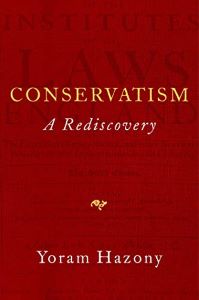I've often said that the number one problem confronting policymakers today, not just in Canada but throughout the Western world, is the general, and in my opinion cataclysmic, degradation in the quality of thought that goes into positions they take on issues, and the policies that are derived therefrom. Some refer to this as “post-modern thinking”. That gives it too much credit. I prefer to call it “post-thinking modernism.”
A prime example of this alarming trend is “Earth Hour” and the practices identified with this event. For those who don't know, Earth Hour 2024 will occur at 8:30 pm local time on the evening of Saturday, March 23rd. Its intent – to draw attention to the state of the environment and to highlight what human beings can do to minimize their impact – is noble enough. The problem is that, as a sign of their commitment to sound environmental stewardship, the public is being asked to turn their lights off at that time and leave them off for one hour.
This makes no sense.
To begin with, although turning off the lights will reduce the amount of electricity consumed during that one hour, it will have no impact on electrical generation, as this is not modulated to meet minor variances in demand. In other words, people shutting off their lights will result in exactly zero reduction in generation. Electricity will continue to be generated at whatever capacity it is set to before and after that hour, without alteration. No savings whatsoever.
“Not to worry,” Earth Hour defenders argue. “The true value of Earth Hour is not in the energy it saves, but in the lesson that it teaches.” But what is that lesson? That electricity is bad for the environment? Or technology generally?
That's just pseudo-scientific poppycock.
Proponents of this annual event seem to think that everyone will just sit around quietly in the dark for an hour on a Saturday night doing nothing. That is, I venture to say, pure fantasy. Sure, a percentage of people will turn their lights off – then flip on the big-screen TV to catch the local Saturday night hockey game. They’re the more sensible ones. But how many will “prove” their commitment to a healthy environment by using candles as a “natural” substitute for electric lights? I suspect that the percentage who choose this path will be high among the true believers, oblivious to the net negative consequences of their actions.
Consider what the simple electric light bulb replaced – gas and oil lamps and candles, and before them, torches and campfires. The level and toxicity of the pollutants produced by these old light sources, including so-called greenhouse gases, far exceeds those emitted in the production of the electricity needed to power all of the electric lights that replaced them. The invention of the electric light bulb also eliminated the health and safety risks that accompanied the use of these open flame sources of light.
And then there are all the other benefits of modern technology made possible through the harnessing of electrical power – benefits too numerous to enumerate. Far from being harmful, the discovery of electricity, the invention of the electric light bulb, and virtually everything that has come after that in the field of electronics, have been good for the environment.
That's not to say that each of these advances in technology haven't come with their own unique set of problems – they have – but it is to say that the problems they solved, including many that we may never have become aware of without the new technology, were much worse. Indeed, our very ability to understand and monitor the impact of our activity on the environment through the measurement and collection of data, and our capacity to develop new and better ways of mitigating that impact through computer modeling and control, are dependent on electricity.
So this year, when Earth Hour arrives, rather than turning my lights off, I and other thinking people will be turning them on in recognition and celebration of the immense contribution that electricity has made to the protection of our environment, a contribution symbolized by the simple electric light bulb.
Dear Reader,
I don't charge for my content, but...
I do accept voluntary contributions from readers like you who appreciate insightful analysis and value intelligent debate. If you like what you are reading, please consider making a small one-time or monthly contribution by clicking here.


 Conservatism: A Rediscovery explains how Anglo-American conservatism became a distinctive alternative to divine-right monarchy, Puritan theocracy, and liberal revolution. After tracing the tradition from the Wars of the Roses to Burke and across the Atlantic to the American Federalists and Lincoln, Hazony describes the rise and fall of Enlightenment liberalism after World War II and the present-day debates between neoconservatives and national conservatives over how to respond to liberalism and the woke left.
Conservatism: A Rediscovery explains how Anglo-American conservatism became a distinctive alternative to divine-right monarchy, Puritan theocracy, and liberal revolution. After tracing the tradition from the Wars of the Roses to Burke and across the Atlantic to the American Federalists and Lincoln, Hazony describes the rise and fall of Enlightenment liberalism after World War II and the present-day debates between neoconservatives and national conservatives over how to respond to liberalism and the woke left.